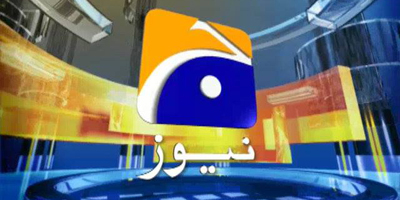Ban on Geo is attack on press freedom: AI
JournalismPakistan.com | Published: 6 June 2014
Join our WhatsApp channel
Amnesty International has criticized the Pakistani government's ban on Geo TV, asserting it undermines press freedom. The ban follows accusations of political bias against the military and is seen as part of a broader suppression of critical media voices in the country.Summary
The Pakistani government’s suspension of Geo TV, the country’s largest private broadcaster, is a politically motivated attack on freedom of expression and the media, Amnesty Internationalsaid.
“The suspension of Geo TV is a serious attack on press freedom in Pakistan. It is the latest act in an organized campaign of harassment and intimidation targeting the network on account of its perceived bias against the military,” said Richard Bennett, Amnesty International’s Asia Director.
“The Pakistani authorities must immediately reverse this ban. If there are concerns about the content of Geo TV broadcasts, the authorities should address this in line with international human rights standards – not simply move to silence a critical voice.”
The governmental body Pakistan Electronic Media Regulatory Authority (PEMRA) today ruled that the licenses of Geo TV be suspended for 15 days with immediate effect.
The ban is due to allegedly blasphemous content broadcast last month by Geo TV - part of the Jang Media Group - and its earlier accusations against a senior military intelligence official.
Geo TV has been locked in a stand-off with the Pakistan military, rival media houses and some political parties since one of its journalists, the news anchor Hamid Mir, narrowly escaped an assassination attempt in Karachi on 19 April.
The network accused the Pakistani spy agency Inter-Services Intelligence (ISI) of being behind the attack, which the ISI has denied.
On 20 May some government officials attempted to pull Geo TV off the air over allegedly “anti-state” and “blasphemous” content, apparently under pressure from the military, but within hours the decision was overturned by PEMRA’s executive authorities until today’s order.
“The suspension of Geo TV sadly fits an all too familiar pattern in Pakistan. State authorities and other political actors use any means they can to silence critical reporting, from the use of anti-state and anti-religion provisions of the law to physical attacks and violence,” said Richard Bennett.
In a report released on 30 April, Amnesty International documented how media workers in Pakistan live under the constant threat of harassment, violence and killings from a range of state and non-state actors.
Several Jang Media Group journalists have told Amnesty International that they have received daily threats and harassment by unknown individuals by phone and in person.
Many said they dare not enter their offices or identify themselves as belonging to Geo TV or other Jang Media Group outlets for fear of being attacked.
“Pakistan’s vibrant media scene deserves better protection, and journalists must be able to carry out their legitimate work without fear or interference,” said Richard Bennett.
KEY POINTS:
- Geo TV suspended by Pakistani authorities for allegedly blasphemous content.
- Amnesty International calls the ban a politically motivated attack on media freedom.
- The suspension is framed as part of an ongoing harassment campaign against the network.
- Geo TV's journalists report facing threats and harassment from various actors.
- Richard Bennett emphasizes the need for protecting journalists in Pakistan.

























